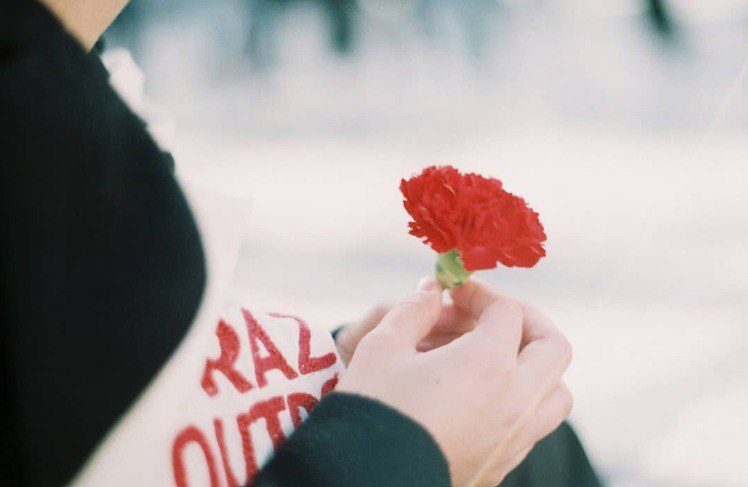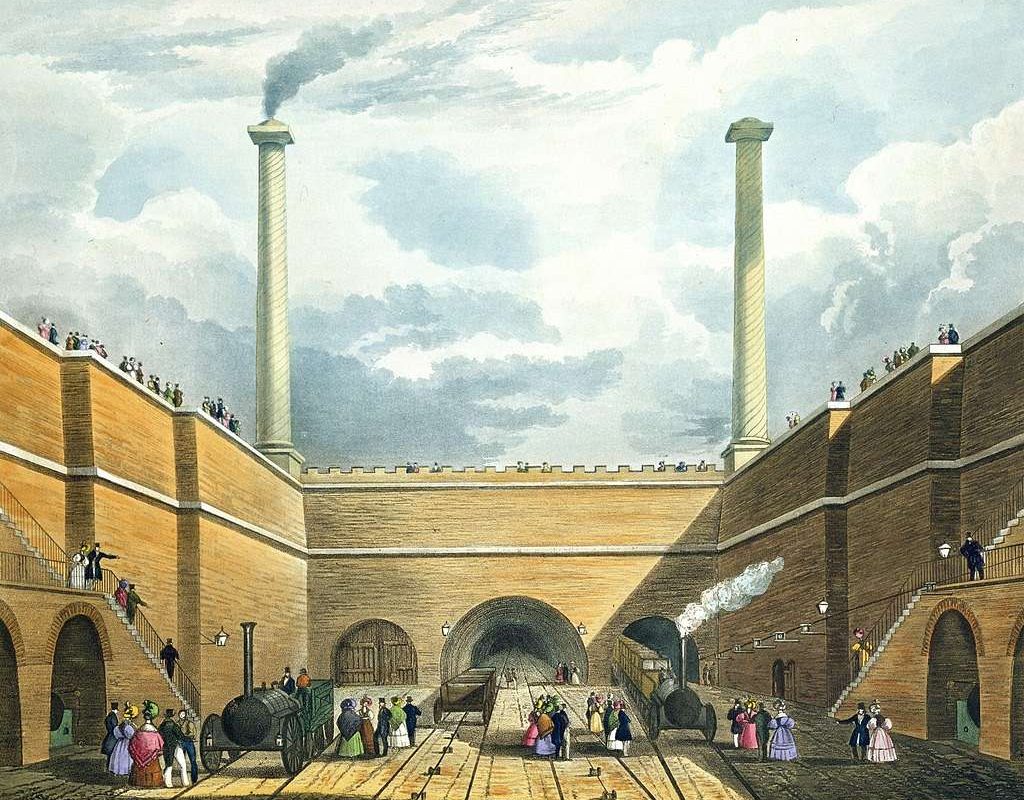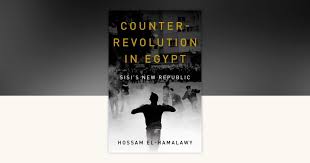“Your Excellency, General Director, I hereby inform you that yesterday, 25 April 1974, several workers skipped work, evoking a revolution in the country. I would like to clarify that this revolution was not authorised superiorly […]. Since in the current legislation, absences due to revolution are not foreseen, I submit the matter to your consideration, certain it will receive the deserved attention.” – Ambrósio Silva, a public servant, head of the 3rd Section, complaining to his superior about the Carnation Revolution
On that April day, Europe’s longest dictatorship came to an end. During its more than forty years of existence, the regime’s single party, Acção Nacional Popular (National Popular Action, ANP), kept all political activity down to a minimum or condemned to clandestinity, with no freedom of expression or association.
The regime’s favourite tool, the so-called “blue pencil”, came to symbolise the censorship that covered books, press, music, and theatre. Beyond political expression, the material conditions weren’t any better. In 1970, half of the Portuguese population didn’t have running water, around a third had no electricity, and one in every four people couldn’t read or write; 64% of whom were women.
Those who dared to voice any sort of opposition to the Estado Novo (New State) would either have to seek shelter in exile or face persecution by PIDE/DGS — the state police, which is said to be modelled on the Gestapo (with some officers doing “training” visits to German camps), and relied on a deep network of informers. PIDE routinely carried out mental and physical torture on its prisoners including interrogation, sleep deprivation, beatings, or forcing them to stand up for hours on end. These took place both in the country in prisons such as Caxias, Peniche, or Aljube, as well as abroad in places such as Tarrafal, a concentration camp for disobedient military officers, communists or other enemies of Salazar’s regime.
The song is a weapon — and the flowers, too
The “unauthorised revolution” was a coup led by the Movimento das Forças Armadas (MFA – Armed Forces Movement) to overthrow the dictatorial regime, whose lead figure following Salazar’s death in 1970 was Marcello Caetano.
On 25 April 1974, MFA proclaimed in a national radio broadcaster that the “hour of liberation” had come. Earlier the same day, they had already used the radio to kick off operations, playing two songs by Paulo de Carvalho (E Depois do Adeus) and Zeca Afonso (Grândola, Vila Morena) as code signals for the military to take control of various strategic points throughout the country. In Lisbon, led by Salgueiro Maia, the most threatening action was happening: Caetano was hiding in Quartel do Carmo, from where he was eventually forced to surrender and head into exile.
Despite the requests to stay home, people took to the streets — some scared, but the majority in support of the coup, in what would become immortalised in pictures tinted with red and carnations. The revolution, which is also called the Carnation Revolution, has a name born out of serendipity. It was a regular Thursday morning for Celeste Caeiro, on her way to work, at a restaurant that happened to be celebrating its first anniversary. Upon arrival, she was sent home and told, “a revolution is underway”. On her way out, she took some flowers with her — red carnations — meant for the restaurant’s commemoration. On her way home, passing by a group of soldiers, one asked for a cigarette. Instead, she offered him a flower, which he placed in the barrel of his gun. Others followed him, and soon the florists in the area were handing out carnations to every man in a uniform, universalising the revolution’s symbol.
In the aftermath of 25 April 1974, the National Junta of Salvation (a subgroup of the MFA) was formed and promised free, democratic elections. In the weeks and months to come, they abolished the PIDE and censorship, and started the transition towards democracy. The period’s goals would become eternised in the “3 Ds” slogan: decolonisation, democratisation, and development.
During 1975, the National Junta of Salvation was replaced by the Council of the Revolution, and the PREC (Ongoing Revolutionary Process) was in place. The period was known as “hot summer” due to the political and social turmoil. Banking and other sectors were nationalised, workers organised to take over companies and businesses, lands and farms were occupied. The country was divided between supporters of a revolutionary path and a more moderate one, and several political and intellectual figures visited the country in a sort of “revolutionary tourism”. In April 1975, exactly one year after the revolution, the first free elections were held to elect a Constituent Assembly, with 91% of the population participating. This was the first time women were allowed to vote. The dreams of the 1975 hot summer were crushed by the 25 of November, as liberals led a counter-coup which ended the PREC and the revolutionary period.
25 April started in Africa
Despite the presence of the April Captains (as the MFA leaders became known) as the main pillar in the revolution’s memory, the origins of the rebellion spirit have their roots in the armed struggle that was going on in the colonies. Independence from the Salazarist regime was not given or conceded — the people in Angola, Mozambique and Guinea-Bissau were taking back power.
By the time the revolution came, Portugal had been involved in a colonial war for 13 years, with estimates pointing to 45,000 people dead and 53,000 injured. Despite the huge military costs (44% of the total state budget between 1971 and 1973), the country was having a hard time suppressing the liberation struggles.
Some of the April Captains had fought in Guinea-Bissau, where the PAIGC had already declared independence in September 1973, and in Mozambique where the army was losing to the guerrillas from FRELIMO. The Portuguese men who were being sent to what were effectively death sentences had begun to realise that the war was lost, and that they were on the side of the oppressor.
Fuel was added by the February 1974 publication of the book “Portugal and the Future” by General Spínola, where he argued that negotiated autonomy for the colonies was necessary as the colonial wars could not be settled by force. Inspired by this argument, around 300 officers organised the Armed Forces Movement which planned the April coup.
Memory is a fragile thing
Every year since 1974, people have filled the streets across the country on April 25, holding red carnations, shouting slogans and singing popular, revolutionary songs. The Carnation Revolution, as the main pillar of Portuguese democracy, has been an undeniable truth. That was, until the far-right narrative made its way into the popular discourse, 50 members of parliament were elected for the party Chega in 2024. The far-right party is not only racist, sexist and xenophobic, but it also draws inspiration from Salazar’s regime. They even used the slogan “god, homeland, family” (one of Estado Novo’s catchphrases) in earlier campaigns, and try to draw similarities between the far-right and what they call the “far-left”.
Beyond their electoral results, Chega’s danger especially lies in the infiltration of its narrative in society. Recent studies have shown that hate speech against immigrants is stronger and that hate-based attacks are more frequent than before. One of the ways in which this is visible is in the dispute over 25 April’s memory; for around 50 years, it was held as a marker of democracy and the founding moment of the history of the country. More recently, some equivalence is wrongfully being sought between 25 April and the counter-coup on the 25 November. Starting in 2019, the liberal and conservative parties have attempted to mark it as an official commemorative date, using slogans such as “25 November always, communism never again”, in a appropriation of the popular “25 April always, fascism never again”.
Portugal is faced with severe social problems such as a rocketing housing crisis, low wages and the destruction of the national health service, to name a few. These haunt the 1974 promise for a just, complete democracy. This is also why people will take to the streets today, and next year, and the following one, holding red carnations up high and singing “The Song Is A Weapon”. But April is not just a faraway memory for those who were there; it is a lighthouse for all the months to come, for all those who are loyal to its meaning.




